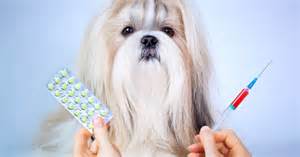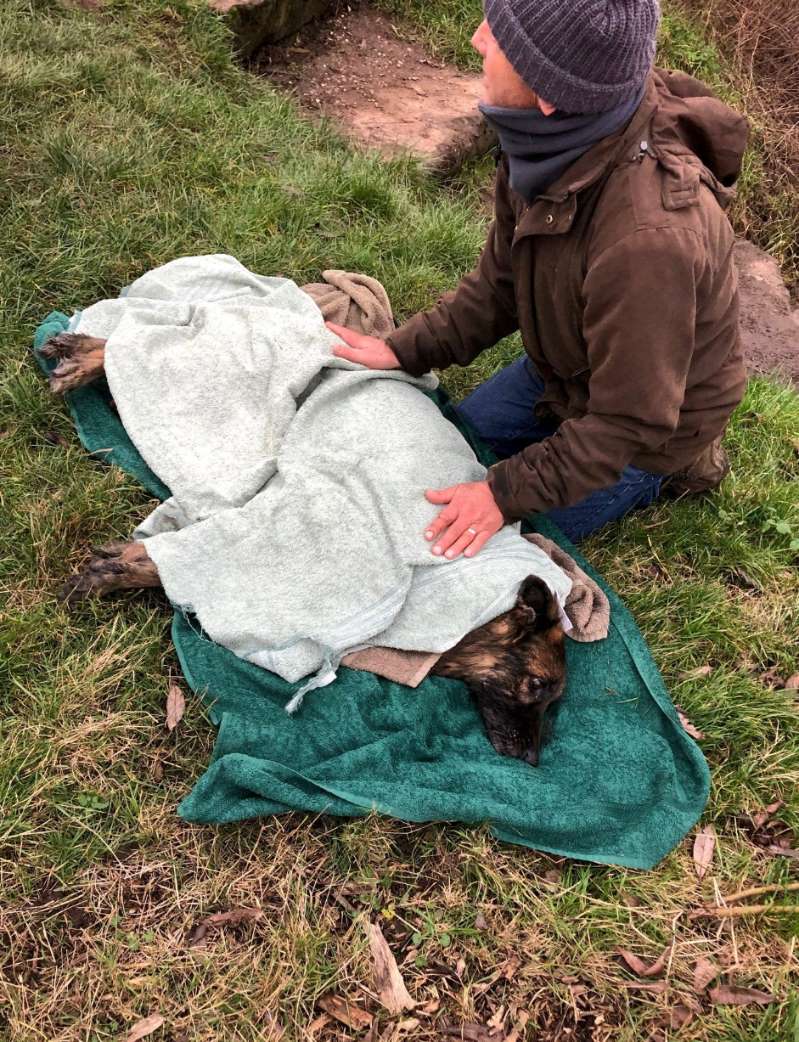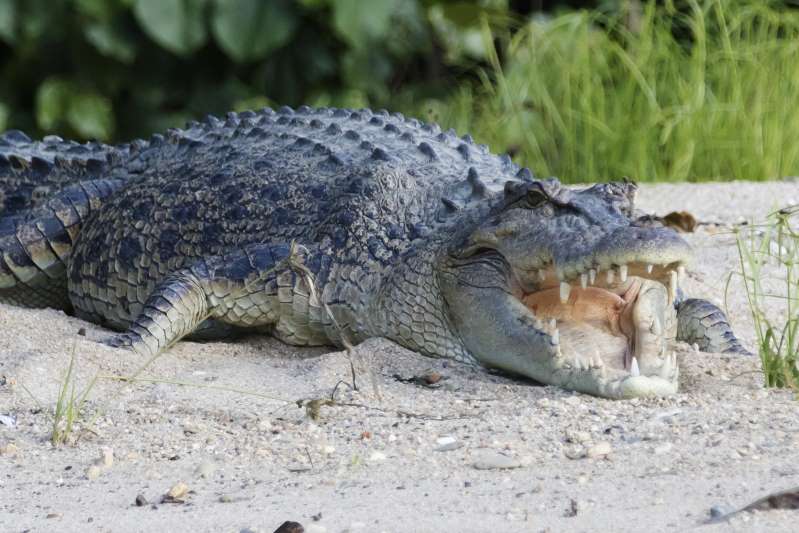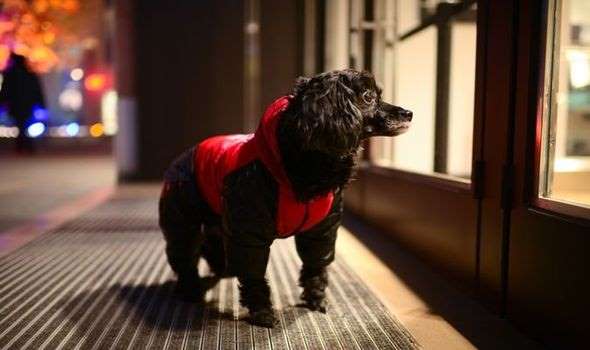Russia develops first Covid vaccine for animals






Russia develops first Covid vaccine for animals
The world’s first Covid vaccine for animals has been registered by scientists in Russia, after tests showed it was effective in several species including pets and livestock.
The breakthrough will allow mass production of the vaccine to begin as early as this month, raising hopes that potential future mutations of the virus that could be even more harmful to humans may be prevented from spreading.
Tests showed that Carnivac-Cov, which entered clinical trials last October, generated antibodies against Covid-19 in dogs, cats, foxes, mink and other animals.
The jab already has orders from fur farms in Russia and other businesses in Greece, Poland and Austria, and companies in the US, Canada and Singapore are said to have shown an interest in the drug.
“The results of the trials allow us to conclude that the vaccine is safe and highly immunogenic as all the vaccinated animals developed antibodies to coronavirus,” Konstantin Savenkov, deputy head of regulator Rosselkhoznadzor – the Russian Federal Centre for Animal Health – said in the statement.
“The use of the vaccine, according to Russian researchers, can prevent the development of viral mutations, which most often occur during interspecies transmission of the agent.

“So far, it is the world’s first and only product for preventing Covid-19 in animals.”
The watchdog said the animals had continued to show an immune response for at least six months and that it would continue to study the vaccine's effect on the animals. The jab would be able to protect vulnerable species and prevent viral mutations, the regulator said.
Russia already has three coronavirus vaccines for humans, the best known of which is Sputnik V.
Moscow has also given emergency approval to two others, EpiVacCorona and CoviVac.
The World Health Organisation (WHO) has expressed concern over the transmission of the virus between humans and animals.
Russia has so far only registered two cases of COVID-19 among animals, both in cats.
Denmark culled all 17 million mink on its farms last year after concluding that a strain of the virus had passed from humans to mink and that mutated strains of the virus had then turned up among people.
Earlier this week the WHO said in its report on the origins of the pandemic that coronavirus was “very likely” to have first passed from bats to humans via another animal.
According to the group’s findings, revealed in a draft version of the study obtained by the Associated Press, evidence suggests Sars-CoV-2 emerged naturally in bats before passing to humans via an unconfirmed intermediary animal host – a scenario deemed “likely to very likely” by the scientists.
Reference: Independent: Tom Batchelor
Dog owner who tied heavy rock to pet and threw it into river fined £80






Dog owner who tied heavy rock to pet and threw it into river fined £80
A dog owner who tried to drown her pet by tying a heavy rock to its neck and throwing it in a river has been fined just £80.
Charlene Latham, 32, put the rock in a carrier bag and tied the handles to her Belgian shepherd Bella’s lead.
She then threw the dog and the rock into the River Trent in Farndon, Nottinghamshire, before running away.
Passer-by Jane Harper was walking along the river bank on the morning of 6 January last year when she heard a loud splash and saw Bella beginning to disappear under the water.
She rushed to rescue the 10-year-old dog before calling the police, who took her to a vet.
Latham was arrested after Bella’s microchip identified it, and she later admitted causing unnecessary suffering to animal.

On Monday, she was handed a 12-month community order, fined £80 and ordered to pay £232 costs and victim surcharge at Nottingham Magistrates’ Court.
Latham, formerly of Newark, Nottinghamshire, but now of Ilfracombe, north Devon, was also banned from keeping dogs for three years.
The vet who examined Bella said it was “likely she would have died” if she had not received treatment in time.
"She was severely hypoglycemic, hypothermic and tremoring to the point where she could not stand,” they added.
Bella was later transferred to the RSPCA Radcliffe Animal Centre in Nottingham, where it made a full recovery and is now looking for a new home.
Ella Carpenter, manager at Radcliffe Animal Centre, which is caring for Bella until it is rehomed, said: “At times we thought she just wouldn’t make it, with her age and underlying health conditions all against her.
“But Bella has fought every day, showing enviable strength and courage, not wanting to give up her fight to recover.
“Her new owners should have experience of large-breed dogs, ideally owning German shepherds before, and have no other pets.
“She will need a very secure garden. She does not like to be around other dogs and is reactive and unsettled in their presence.”
Recalling the rescue, Ms Harper, of Newark, said: "I honestly don't know how she survived.
“She was in such a bad way. She was just a dead weight. She was in a terrible state.
“When I first saw her, I thought she was dead. I was trying to talk to her and lift her out, but she wasn't responding.
“Then her eyes moved and I thought ‘I've got to help this dog’.
“It was a real struggle and we had to call others to get her out because of the weight.
“I soon realised this was a deliberate act and not just an animal in a tricky situation.
“Her coat was so thick and she had no strength, but we just kept talking to her and keeping her calm. It was a real team effort.
“It feels great that she's now got a chance to spend her last few years with a loving family.
“It would be so nice that she was giving so much love and attention in her remaining years. That's all she needs.”
Reference: Independent: Chiara Giordano
Giant 14-foot-long crocodile found with human remains in stomach
![]()
![]()
![]()
![]()
![]()
![]()
Giant 14-foot-long crocodile found with human remains in stomach
Human remains have been found inside the stomach of a 14-foot-long (4.2 meters) crocodile on an island north of Queensland, Australia. According to local authorities, the remains likely belong to Andrew Heard, a 69-year-old fisherman who went missing from the area on Feb. 11.
Heard was last seen that Thursday afternoon when he left his yacht on Hinchinbrook Island (close to the coast of northeastern Australia) in a small fishing dinghy, according to the Australian Broadcasting Corporation (ABC) news site. When he failed to return that night and stopped responding on his radio, Heard's wife called the authorities.
His dinghy was found capsized early Friday morning (Feb. 12), showing damage indicative of a crocodile attack.

On Friday night, investigators discovered human remains in the area; the next day, they found the gigantic croc nearby, according to the Queensland government. Environmental authorities euthanized the croc and cut it open, revealing more human remains in its guts.
"The crocodile captured yesterday is believed to be the animal involved in the disappearance of a man," Queensland Environment, a local government agency, tweeted on Saturday (Feb. 13). "Our thoughts are with the family at this difficult time."
The coasts around Queensland are home to the largest species of crocodile on Earth: the saltwater crocodile (Crocodylus porosus). Saltwater crocs can grow up to 23 feet (7 m) long, though they rarely exceed 16 feet (5 m), according to the Queensland Museum. They inhabit coastal waters throughout the western Pacific, from the southern coast of India to northern Australia. And they are known to attack humans.
Indeed, two additional crocodile attacks were reported in Queensland in the last two weeks, according to Vice News. In late January, a man in his 40s was bitten on the head while swimming at Lake Placid, roughly 100 miles (160 kilometers) north of Hinchinbrook Island. The man survived with minor injuries after prying the croc's jaws open with his hands, according to news reports.
Several days later, a 22-year-old man was attacked by a 12-foot-long (3.6 m) crocodile while swimming near Australia's northernmost tip. He survived with lacerations to his hand, and the croc was subsequently euthanized.
Miracle as lost cocker spaniel found 200 miles from home after being stolen TWICE
![]()
![]()
![]()
![]()
![]()
![]()
Miracle as lost cocker spaniel found 200 miles from home after being stolen TWICE
Poor Bruno has been through quite the ordeal. First, he was taken from his home in Buckinghamshire in December along with two other roan-coloured spaniels, a male and a female named Dolly and Marmalade.
He was later found in Darlington, 230 miles north. When he was waiting in kennels to be reunited with his worried owners, he was cruelly stolen again, all in the space of one week.
Bruno's owners posted a desperate plea on social media to try and find their beloved pet. The appeal gained momentum and prompted a huge internet campaign to get Bruno home safe.
The Facebook post read: "Dear Bruno, how unlucky can one dog be? Waiting to be reunited with his family, he has been stolen again from police approved kennels in Darlington."
Thankfully, happy news came on Monday when Bruno was found in Leeds, 176 miles from his home in Buckinghamshire. The poor dog had been tied up and abandoned.
The group wrote on Monday: "FINALLY- The news you have all been waiting for...

"Bruno is safely home. He was picked up straying, having been dumped in Leeds early this morning. He was handed into a vet and owner advised. He is in good shape and checked over. He was sat with his lead waiting patiently!
"Owner and family wish to thank each and every one of you for all your shares."
The group then reminded "there are still two other dogs stolen with him that remain missing", referring to Dolly and Marmalade who still have not been found.
This news comes after reports dog theft are massively on the rise across the UK, increasing by 170 percent since the beginning of lockdown.
The pandemic has caused a rise in demand, and the cost of dogs has skyrocketed. Criminals are taking this opportunity to snatch and resell them to make some cash.
According to the Pet Census there are a number of places your dog is most likely to be stolen. The most likely being the owner's garden, local parks and cars.
SimpliSafe has put together a number of tips to avoid dog theft:
- Make sure your dog is microchipped and their details are registered and kept up to date with a microchip database such as Petlog.
- Owners should take preventative measures, including ensuring their home has an alarm system, not leaving their dog tied up outside a shop or other public place and making sure they can see their dog when out and about on walks.
- Make sure your home is secure from the outside. Simple measures such as driveway gates, motion sensor lights and home security cameras can really deter burglars who may look for quick opportunities to swipe valuable pets.
-
If your dog does go missing it is crucial to act quickly. Immediately report the crime to the police and ensure you are given a crime reference number- and that your dog is correctly reported as stolen, not lost. Notify your microchip provider, vets, nearby rescue centres and your local authority dog warden, if you have one.
Social media can also be effective in spreading the word as seen from Bruno's story.

 How to resolve AdBlock issue?
How to resolve AdBlock issue?